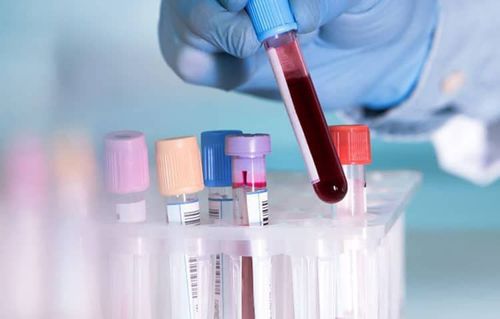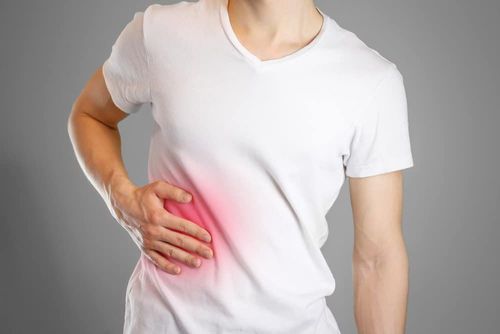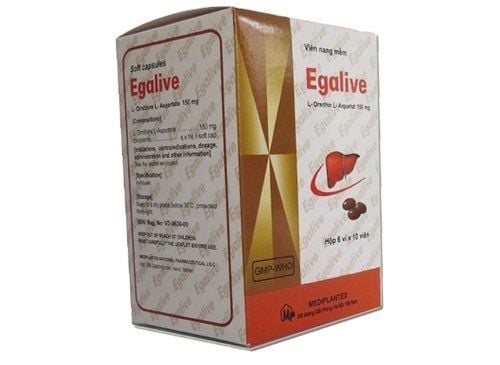This is an automatically translated article.
The article is expertly consulted by a Doctor of Gastrointestinal Endoscopy - Department of Medical Examination & Internal Medicine - Vinmec Da Nang International General Hospital.Once the liver has been damaged, it can lead to many other diseases that seriously affect the patient's health. Taking a quiz to check understanding of the liver can help users realize the important role of the liver, from which measures to protect the liver prevent disease.
1. What is the function of the liver?
A, Detoxifies the bloodB, Regulates body temperature
Besides removing toxins from the blood, the liver has about 500 other jobs, including making bile - a liquid that helps digest food. The liver converts food and fluids entering the body into energy and nutrients; for example, helping the body use sugar. The liver also plays an important role in helping blood clot.
2. How big is the liver?
A, Soccer BallB, Golf Ball
C, Ice Hockey
The liver is a wedge-shaped organ, about the size of a soccer ball. Weighing about 3 pounds, it's the largest organ in the body - except for the skin. The location is on the right side just below the rib cage.
3. How to know if the liver is working well or not?
A, EKGB, Blood test
C, X-ray
Liver function test is a blood test that doctors use to check the functioning of the liver, specifically for damage, disease, or infection or not. Usually, a series of blood tests are ordered and performed at the same time. Your doctor may call these tests a liver function panel or a liver profile.

Xét nghiệm chức năng gan là xét nghiệm máu mà các bác sĩ sử dụng để kiểm tra hoạt động của gan
4. Can liver function be restored?
A, YesB, No
The liver is the only organ that can recover from partial damage. That's why people can donate part of their liver. It is not necessary for a liver donor to be related by blood to the recipient. However, to ensure maximum safety during liver transplantation, most liver donors are usually relatives.
5. You should detox your liver every month
A, TrueB, False
Some people continue to "cleanse" - restricting the diet to certain juices or foods in the hope of removing toxins from the liver. There is no scientific evidence that this detox diet works. Instead, a healthy diet will provide the liver with the nutrients it needs.
6. Why is alcohol harmful to the liver?
A, It slows down the functioning of the liverB, It can damage liver cells
The liver is responsible for converting harmful components in alcohol into waste to be taken out of the body. However, drinking too much alcohol can make the liver work too hard, thereby damaging liver function and harming the body. There are several types of alcohol-related liver disease such as fatty liver disease, alcoholic hepatitis, and alcoholic cirrhosis. If you find it difficult to cut back on alcohol, ask your doctor or counselor for help.
7. Acetaminophen is always safe for the liver
A, TrueB, False
Taking too much acetaminophen (Tylenol) can cause serious liver damage. This active ingredient can be found in more than 600 medicines, including prescription and many over-the-counter pain, cold and cough medicines.
For adults, the daily limit of acetaminophen is equivalent to 6 Tylenol tablets. Read the ingredients carefully, follow label directions and your doctor's advice. If taking Tylenol continuously for more than 2 weeks, consult your doctor for advice and request additional liver function tests.
8. When is jaundice?
A, EczemaB, Jaundice
C, Canker sores
Skin and eyes can turn yellow when there is too much bilirubin in the blood. Bilirubin is a yellow pigment that the body makes when it breaks down red blood cells. Normally, the liver is responsible for filtering bilirubin. But if there is too much bilirubin or the liver is damaged, it can lead to jaundice.
Hepatitis A is an example of a disease that causes jaundice. In addition, infants often develop jaundice because their livers are still developing and have difficulty filtering bilirubin.
9. Are cirrhosis and alcoholism always related?
A, YesB, No
Cirrhosis is the most serious type of alcohol-related liver disease. 1 in 5 heavy drinkers will be diagnosed with cirrhosis. The liver cannot regenerate after cirrhosis. Only stopping drinking can stop the disease from getting worse.

Xơ gan là loại bệnh gan nghiêm trọng nhất liên quan đến rượu
10. Is the only way to avoid liver damage is to stop drinking?
A, YesB, No
Drinking less alcohol can help prevent liver problems. If you have a drinking problem, get help to quit drinking. However, there are many other causes that lead to decreased liver function. In addition to abstaining from alcohol, people at risk of liver disease should maintain exercise and have a balanced diet. Also, consider getting tested for hepatitis C.
Especially for those who have used IV drugs or had a blood transfusion before 1992. Seek medical advice if there is a need for hepatitis A and B vaccines.
11. Can the body sense when the liver begins to damage?
A, YesB, No
Liver disease can be “silent” for a very long time. Up to half of people do not have any symptoms. Some people have warning signs, but often very vague, like really tired and sore muscles. In addition, there are other signs that appear in the later stages such as itchy skin, swelling in the abdomen, dark urine, confusion or yellowing of the eyes or skin. When you notice the above symptoms or feel tired for no reason, see your doctor for a liver function test.
12. Vaccines can help against what type of hepatitis virus?
A, Hepatitis B VirusB, Hepatitis C Virus
There is only one vaccine to help prevent hepatitis B. In the United States, the hepatitis B vaccine is given to all babies and children. , as do most adults. To ensure effective disease prevention, the baby will receive 3 consecutive injections in the first 6 months after birth.
13. Hepatitis C virus is mainly sexually transmitted
A, TrueB, False
Hepatitis C is usually spread through blood, through needlestick accidents in the hospital or sharing needles when injecting drugs, from an infected mother to her baby during childbirth, through sexual contact sex. As a general rule, if a person is at risk for an STD, that person is also at risk for hepatitis. So, make sure to protect yourself by using a condom when having sex.
Screening for liver cancer every 6 months is one of the ways to detect the disease early, even when there are no symptoms. Where to screen for liver cancer to give accurate results is a matter of concern for many people.
Please dial HOTLINE for more information or register for an appointment HERE. Download MyVinmec app to make appointments faster and to manage your bookings easily.
Article referenced source: Webmd.com












